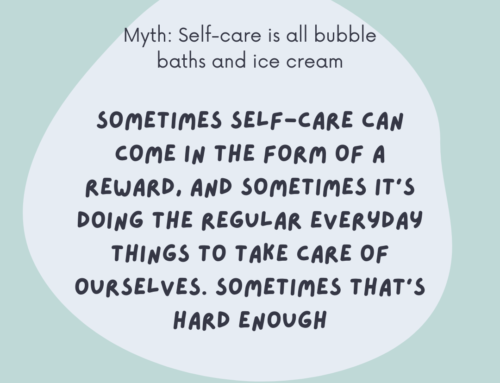Coming to therapy is an investment. You are investing in yourself and hopefully creating a life and a mindset that will support you as you move through life. One important thing to remember is that your therapist is not responsible for your progress. In order to get the most out of therapy, you have to show up for yourself. The great part about therapy is that it’s the best place to learn about yourself. Your therapist will help you see parts of you that have been blurry, hidden, or otherwise unknown. Through the therapeutic process, you will start to see why you think and behave the way you do, uncover emotions that you are feeling, understand them, and process them. This will help you navigate through your challenges and relationships in a more authentic and meaningful way. You have a role to play in the relationship with your therapist, and in order to have the best experience in therapy, you can collaborate with your therapist in the following ways:
Find the Right Fit
It’s imperative that you feel comfortable with your therapist. You want to feel safe, heard, and that you can be honest about yourself without judgement. Therapist’s are inherently non-judgmental. We don’t bring our personal biases into the room. Having said that, we are human. You will not get along with everybody. And we genuinely do want you to feel comfortable and have the best experience. If you don’t feel like you jive with us, we encourage you to find someone you will jive with! Most therapists will offer an introductory consultation at no cost to you. In this 15-30 minutes, you can briefly share what is bringing you to therapy, your past experiences with therapy and what has/hasn’t worked for you in the past, and ask the therapist some questions about their experience and approaches. You may want to ask about their experience working with others with your particular issue, what approaches they take to therapy, how that approach might help you through your current struggles, and what to expect if you decide to move forward with them as your therapist.
You Get What you Give
Opening up and sharing your innermost vulnerabilities can be scary, especially with a stranger. The benefit of seeing a therapist is two-fold; they are a professional, who is on your side. A therapist will not judge you for anything you share with them, and if you do feel judged, then share this too! This is a relationship, it works best as a collaboration, and being open and honest is critical. The more you share with your therapist, the better informed they are to help you process your situation and share their observations. If you feel shame or embarrassment, this is important information for your therapist to know, they want to know. Everything that happens between you and your therapist is of value and part of the therapeutic process. The more open and honest you are, the more you are going to get out of therapy. If you feel like something is not working, tell your therapist. Your feedback and your experience is important. If it’s not working, they will want to know why and make changes with you so that it does. You really do get what you give.
Be Persistent
Therapy is rarely a quick fix. It often takes a number of sessions on a regular basis for you to start seeing change. Change is expected to occur in small degrees. Many therapists will recommend weekly sessions, at least at the beginning, in order to gain momentum and build the therapeutic relationship. Of course, this may not be feasible given your resources of time and finances, and your therapist wants to work with you so that therapy is easily accessible to you. Many insurance companies will cover therapy costs, either a percentage of the fee, or up to a certain amount. And some therapists will over a sliding scale fee, it doesn’t hurt to ask. To further expand on the previous point; you get what you give in the therapy room, you also get what you give to your therapy experience outside of the therapy room. If you and your therapist decide that homework is a good tool, then do the homework. Change will happen in the therapy room, you will also notice change happening in your life outside of that room. Notice it, engage with it, and talk to your therapist about it.
Do the Work
Yes, I’m saying again. You have to engage in the process! This can look different for everyone, and your therapist can help find what will work best for you. Some people like to keep a notebook or a note on their phone of thoughts they have throughout the week they’d like to discuss in therapy. Some therapists may invite you to send emails between sessions if you need a bit more accountability. Maybe writing isn’t your style and you do better with images, so raw. This also chronicles your journey and helps you reflect on the small degrees of change mentioned in the previous point. You know the old saying “practice makes perfect”? Or the amended version “practice makes better”? Same goes for therapy. When you learn a new skill or coping strategy, you have to practice it in order to integrate it into your daily life. Making change is hard work, and it takes time. It can feel discouraging if you notice you aren’t feeling better or things aren’t changing. Talk to your therapist about this, this is a normal part of the process. If you take this part seriously, and actively engage in the process, you will see positive outcomes.
Trust the Process
A lot of focus has been on your role in the therapeutic process. Just a quick note to remind you; you are not alone in this. Your therapist is trained to support you, to offer an unbiased, safe and productive space for you to process your experience. Your therapist works as hard as you do at this. They can help you reflect on the things that bring you to therapy. They understand that change won’t start to take shape until you can see things clearly, and they are there to help show you the way. The process works best when all these recommendations come together in trust and effort.
Reference: 7 Ways to Get More Out of Your Therapy Sessions | Psychology Today Canada






